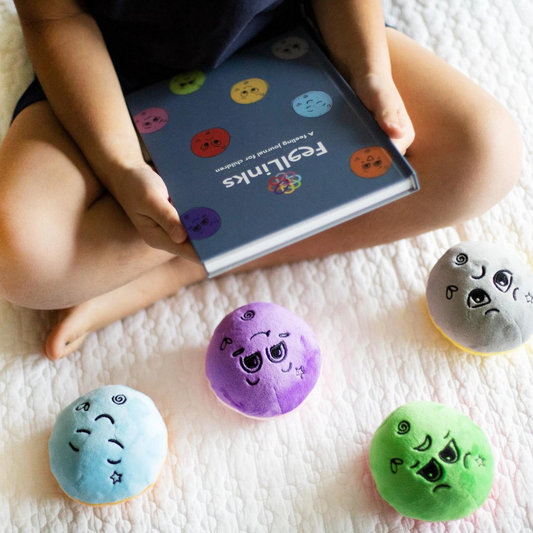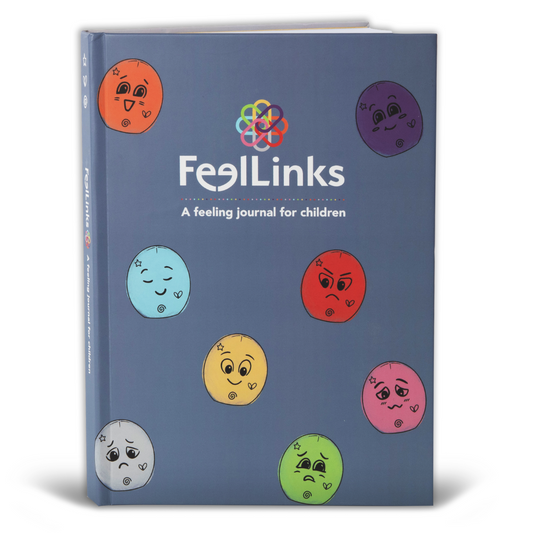The Basics of Emotional Intelligence: What is it? Why is it important? How to teach it to our children?
Share

Emotional intelligence (also referred to as EI or EQ) skills are the ability to monitor one’s own emotions, the emotions of others, and use emotions to guide thinking and actions. Emotions impact our attention, memory, learning, our ability to build relationships with others, and our physical and mental health (Salovey & Mayer 1990).
Just like all things in life, emotional intelligence skills are learned at different rates, there is no single model of how children will develop EI. If a child (or you) has a high level of EI, there is an ability to identify, label, problem solve, communicate and make good choices.
In developing emotional intelligence children will learn extremely important lifelong skills, including:
- Self-awareness – conscious of their own emotions. Able to identify, understand, label and manage emotions. Often has high self-confidence and realistic self-expectations.
- Social skills – Tuned in to other’s emotions, which builds trust and understanding. Is a better friend, parent and partner because you are able to tune in and support others around you.
- Empathy – Able to recognize the emotions of others and be supportive to their needs. Listens well to others and has a great ability to understand their perspective.
- Motivation – Motivated to set and achieve goals, manage tasks, problem solve, are highly connected to who they are and what they value in life. This helps to prioritize importance, achieve goals and productivity.
- Self-regulation – Steady in their emotions, not impulsive, thinks before acting. Is able to feel all the feelings, even the more difficult ones, but knows when, where and how to control the intensity of those emotions.
There are a few things that take a child from pure sensorimotor (Piaget, 1951) to making friends and possessing impulse control. Meaning, children from birth to about age 2, develop understanding of the world through sensory experiences seeing, hearing, tasting, touching and motor actions: reaching, touching, then, they will move past this and on to building friendships and developing a broader awareness of self and others.
These include, but are not limited to (Denham, 1998; Saarni, 1999):
- Developing emotional awareness – Children will develop awareness of their own feelings, then emotions in others.
- Recognizing, identifying, or perceiving emotions – Children will recognize and begin to understand what a feeling is. Children will learn to understand facial expressions, body language and tone of voice. They can attribute these to others, and eventually label these feeling as “happy”, “angry”, “sad”; etc.
- Describing feelings – Children can describe and name emotions. They will learn how to use emotional vocabulary to convey how they feel.
- Empathizing – Children will begin extending concern for what others are feeling or feeling sympathy for animals.
- Controlling and managing their emotions – Children will learn and eventually apply the knowledge about when it is suitable to act or react when they feel something.
- Understanding what causes feelings – Children will understand the cause of feelings in themselves and in others.
- Understanding emotion-behavior linkages – Children will understand why emotions cause certain behaviors. (i.e. “Mom yelled because she’s angry that I did not tell the truth”).
There is no better time than now to focus on these important skills with our children.
MODEL. MODEL. MODEL. That is a great way to teach your children how to understand, label and manage feelings. FeelLinks is a unique, tangible resource to engage your child and you in focusing on these lifelong skills.
My passion is driven from spreading this education and empowering parents and caretakers to take the reins and do this important work with your children.
If these golden nuggets have taught you something and they resonate with you, please pass this along to someone else that could benefit, PAY IT FORWARD!
With Gratitude,
Marcelle





